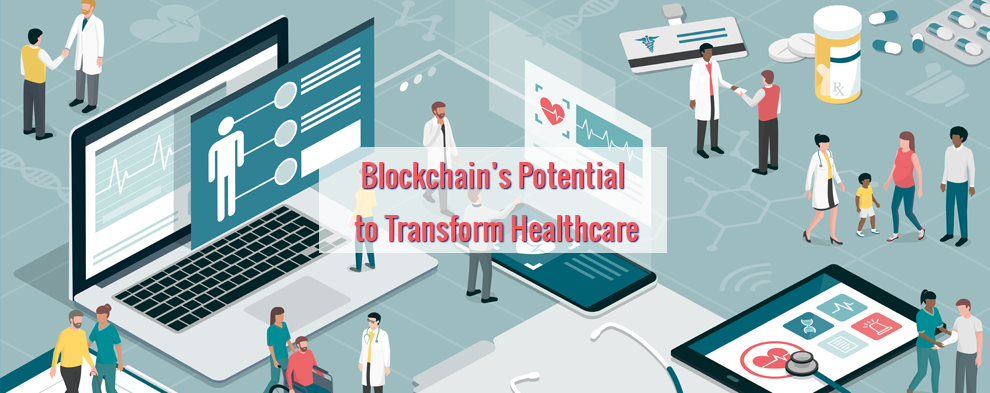
Blockchain implementation in Healthcare can drive significant difference in the industry
Healthcare industry needs revolutionary changes to meet increasing demand in present times. Healthcare system is progressing to be patient-centric along with latest technology enhancements. Blockchain can breakthrough the patient-oriented industry by increasing the security and interoperability of available data, resulting affordable and appropriate treatment. We explained a few areas, where blockchain can bring substantial improvements in healthcare.
Blocklchain has the potential to bring unprecedented efficiencies across healthcare industry Click To Tweet1. Drug traceability
Every transaction added to a block is recorded and immutable. This technology simplifies product tracking. Blockchain verifies trustworthiness of drug manufactures and allows pharmacies to choose participants in supply chain. Each participant in drug supply chain is assigned specific set of accessibility rights based on role specification. Blockchain technology decentralizes the authority and authenticates manufacturers enabling more secure and transparent monitoring of transactions, preventing drug counterfeit.
2. Data security
Medical records:
Once a medical record is generated, time stamped and moved on to the blockchain, it is irreversible and monitoring transactions is transparent. Thus, the integrity of medical records is protected.
Clinical trials:
Blockchain can increase the credibility of clinical trial activities. Data associated with clinical trials if stored as smart contracts can assure immutability, exchange transparency and accuracy. Such stack of records can bring down audit hours, secure documents and minimize scope of breach.
3. Patient Data Management
Privacy and security are the two major concerns while handling PHI. Blockchain can bring a solution to this creating a patient-centric approach. Each patient can be given a unique ID and it constitutes a hash created for PHI blocks. This makes PHI irreversible. Patient can also regulate the access own medical information among multiple parties involved in the system. Through blockchain implementation, patient data management for clinics and hospitals becomes easier.
4. Health Management Analytics
Analytics derived from demographic health data helps in providing desirable healthcare and improves operational efficiencies. Blockchain can create a platform for hassle-less exchange of population health data enabling security, real-time accessibility and interoperability.
5. Consent Management
Block chain implementation can help any participant in the healthcare ecosystem, abide geographical privacy and consent regulations while managing patient information. Permissions can be stored in blocks, so that any party needing patient data can access or share it according to the regulations imposed.
6. Payments Through Cryptocurrency
Deployment of blockchain over healthcare payment applications enable instant, low-cost and trustworthy transactions among multiple parties involved in the system through bitcoin’s peer-to-peer technology. Cryptocurrency transactions can reduce fraud by eliminating the need for middle men.
Pharma companies and drug manufactures can benefit from low transaction fees through cryptocurrency payments. In the present age of countless digital transactions in healthcare, blockchain network can be built to facilitate high number of transactions faster and accurate.
7. Reward Incentives For Patients
Blockchain tokens can act as reward incentives to patients in return for completing required number of appointments, contribution towards clinical trials/research and participation in public health studies. And such incentives can be redeemed to make micropayments by the patients.
Blockchain’s innovation has the potential to bring remarkable difference in healthcare industry with lower complexities, decentralized ecosystem, secure and immutable data. All the participants in healthcare system (e.g., regulatory bodies, patients, clinics, hospitals, drug manufacturers, suppliers or retailers) should adopt blockchain practices to perceive its full potential in health care.
Athena helps healthcare to reconstruct itself with blockchain implementations to achieve a never before efficiency advancements. Click Here to contact us
